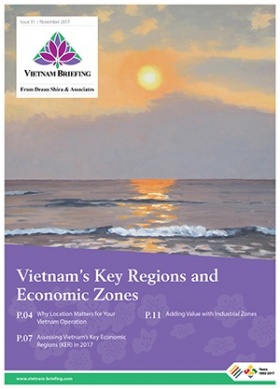Vietnam’s New Age Consumers: Generation Z
- Vietnam’s next generation of consumers – Generation Z, will shape Vietnam’s future consumer market influencing decisions on entertainment activities, shopping as well as food and beverage.
- By 2025 this consumer group will rise to 15 million, presenting significant opportunities for investors
- Generation Z draws from a variety of media to make purchasing decisions and is not easily swayed by unreliable reviews.
The emergence of Vietnam’s next demographic wave of shoppers – Generation Z, the generation following the Millennials – will bring lasting change to the consumer market.
This generation of consumers wields immense spending power: they are estimated to make up 25 percent of the labor force, amounting to 15 million people, in Vietnam.
The consumer landscape is evolving. The incomes of this younger generation are on the rise, and growing financial independence within family households grant them greater leverage on family matters, including new purchases.
Vietnam’s Generation Z
Marketing and product development strategies to target the shifting consumer base from the Millennial generation (born between 1988 and 1999) to Generation Z (born from 1998-2010) is required to adapt with Vietnam’s economic and consumer landscape.
Generation Z was raised when the country was undergoing rapid change, including an economic boom along with the rise of technology and the internet. The emerging demographic wave was also exposed to Western and international ideas at a younger age compared to previous generations.
Phan Tuong Yen, a psychology lecturer at Hoa Sen University in Ho Chi Minh City, said that those born from the mid-1990s onward have welcomed a strong cultural wave carrying the concepts of freedom, individuality, and right to indulge.
These ideas have come alongside a lack of trust in internet-related products. A study conducted by market research firm DecisionLab discovered a general skepticism among Generation Z reading online content, finding that only 13 percent of people trusted online reviews. Market researchers targeting this demographic can relieve this suspicion by providing genuine and trustworthy content.
The study also found that Generation Z has a strong awareness for social issues and are more likely to engage businesses that are socially and environmentally conscious. This represents an inter-related challenge for businesses that would like to connect with this new generation of consumers.
Lifestyle leads consumerism
For Generation Z, growing up in a digital atmosphere have influenced the decision-making process. With multiple forms of media at their immediate disposal (like television and the internet), engagement with the online world of consumer media and products has become hyper-personalized for many people in this generation.
Digital networks and links facilitate exposure to their interests, which create a matrix of consumer options. This demographic of consumers will direct their purchases to cover basic needs – like food, housing, and clothing – based on what they find online.
The power of media apps can influence spending power on leisure activities, which not only guides personal interests but social ones too. Researchers discovered a common social theme where Generation Z’s in Vietnam income is directed: eating out.
A recent poll of 16,000 respondents in Vietnam’s three largest cities (Hanoi, Da Nang, and Ho Chi Minh City) by Decision Lab found Vietnam’s Generation Z spend US$40 (VND 890 000) per month eating out. A survey for food vendor preferences was taken and found that 25 percent preferred fast-food restaurants, 18 percent preferred roadside restaurants, and 17 percent preferred convenience stores.
In terms of beverage consumption, researchers predict that the rising popularity of bubble tea will alter the landscape, compared to the previous generation’s preference for coffee and alcoholic beverages.
Emerging demographic
The emerging demographic of consumers in Vietnam now have access to opportunities that were unavailable to their parents, indulging in hospitality, fashion, food and beverage, and higher-end methods of transportation, such as automobiles and motorbikes.
Furthermore, the widening of services – such as the industrial, manufacturing, healthcare, or the entertainment sector in Vietnam – requires regional talent. Since Generation Z has more freedom to develop their skills and interests, and commit to longer-term planning, investors may consider cultivating these skill and interests to widen the talent field.
Investors who want to target the emerging demographic of consumers in Vietnam should consider the marketing power of media, and the importance of reliability embedded in new marketing to build on consumer trust, as a way to encourage engagement.
Note: This article was first published in November 2018, and has been updated to include the latest developments.
About Us
Vietnam Briefing is produced by Dezan Shira & Associates. The firm assists foreign investors throughout Asia from offices across the world, including in Hanoi and Ho Chi Minh City. Readers may write to vietnam@dezshira.com for more support on doing business in Vietnam.
- Previous Article Vietnam’s Improving Competitiveness: 2019 Global Competitive Index
- Next Article Under Vietnam-EAEU Free Trade Deal, Russian Trucks to be Produced in Vietnam







